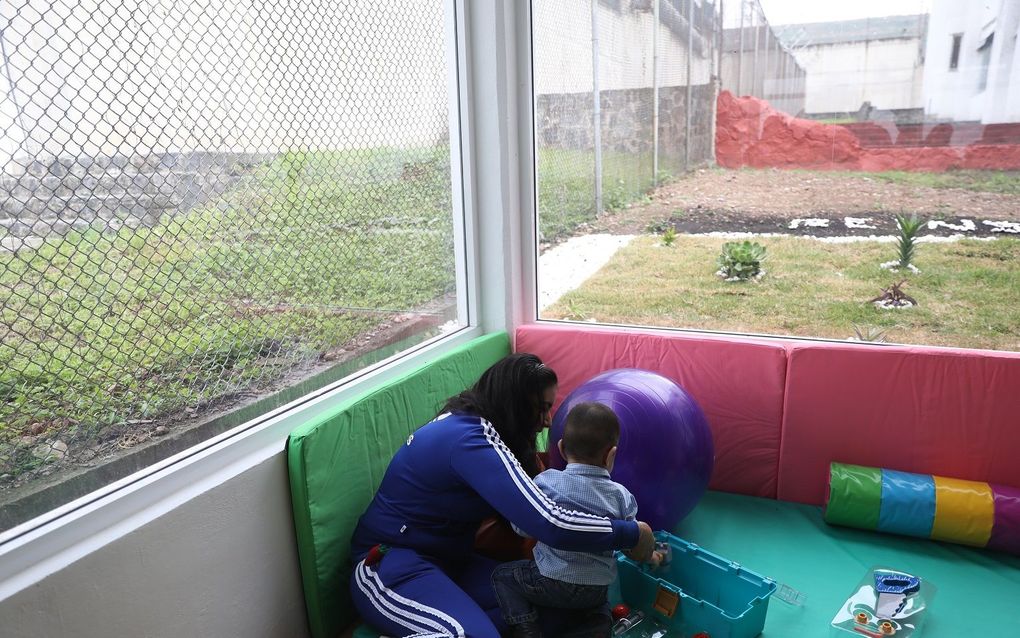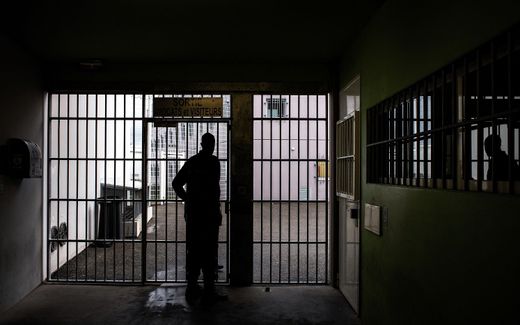When mom is in prison

Photo EPA, Sashenka Gutierrez
Northern Europe
When Tomine was 12 years old, her life dramatically changed. Her mom was imprisoned and would miss much of the development of her daughter.
One day, when Tomine -not her real name- came home from school, her mother was gone. That was scary, the teenager (16) now recalls to Vart Land. What she did not know was that her mom had been taken by the police for questioning. And that was only the beginning because, after several rounds of trials, a judge sentenced her mother to several years in prison.
That had a large impact on Tomines life, who suddenly lived without her mom. Also, everyone in her home village knew her mom had gone to jail. Some people bullied her with that.
However, the relationship between Tomine and her mother suffered the most. She used to be close to her "soapy smelling" mother, who was creative, knitted and gave her handmade sweaters for her birthday. Or who attended her football matches and called her a lucky troll because of her frizzy hair.
The correctional service in Norway has cut about 300 million NOK (about 26 million euros) in its budget since 2014. This year, they will save an additional 200 million NOK (almost 18 million euros). According to For Fangers pårørende, an organisation for children of prisoners, this makes it much more difficult for children to keep in touch with their parents in prison.
Now, Tomine has to do without all of that. And she misses her mother most in the evenings, on her birthday or when it is Christmas.
During the first Christmas holiday, they spent apart, her mother was imprisoned far away. That made it hard for Tomine to visit her. She saw her mom only two to three times during that period, Vart Land writes. Even though they had to travel for hours to get to the prison, Tomine and her siblings were only allowed to see their mom for a few hours and go home after that because the jail did not have a place where visitors could sleep.
Therefore, the teenager was very happy when her mother was transferred to the Bredtveit women's prison in Oslo. She especially liked the fact that it had a visitors' house, "where I slept over several times."
Corridors
Tomine recalls that her first prison visit was overwhelming. Even though she had googled what the prison looked like, she was not prepared for what she encountered. The many doors, the narrow corridors and the strange prison officers were daunting, she remembers. "It was scary."

She describes the whole setting as "unnatural". The gift for her mother was unwrapped, there was barbed wire, and surveillance cameras were everywhere; an unpleasant feeling.
Phone
In addition to the visiting hours, Tomine and her siblings have 20 minutes a week to talk to their mom on the phone. However, that is not much when that time has to be divided between the children. Also, their mother can only call them, not the other way around. Tomine experiences that the imprisonment of her mother has led to a loss of contact. "Sometimes I have missed calls on my mobile phone after I finish my soccer training."
As a result, their relationship has become more distant. "I feel I don't need to talk openly with my mother like my sister does. I have friends to talk to. But maybe my mom notices a little bit that I don't say so much. We talked more openly before."
Change
During the time her mother stayed in prison, Tomine changed from a child to an adolescent. "I grew up. Right now, I'm in secondary school. That is perhaps when you change the most." And her mother missed much of this development.
Currently, her mother is allowed to come home regularly. The date of her release is coming closer. That gives Tomine hope for the future. "Now, there is a lot of change and moving back and forth. But when she moves home, I will get used to living with her again. So I think it will be easier", she tells Vart Land.
Pastoral work
Priest Elisabet Kjeltistad works in Bredtveit women's prison. She notices that many of the inmates feel guilty because they cannot take care of their children. "They miss taking part in their children's lives. Holidays and birthdays are hard, but so are weekdays", she says to Vart Land.
Prison chaplain Knut Nåtedal works in a low-security prison just outside Horten. At this facility, just over a hundred men finish their prison sentence, among them several fathers. Most people receive visits from relatives once a week, the chaplain says. "And a couple of times a week, inmates are allowed to have video calls with their little ones."
However, many families fall apart, Nåtedal concludes. "They can meet over many years but still be strangers to each other. Both parties have to work hard to nurture the parent-child relationship."
The chaplain believes that the correctional services should do as much as possible to facilitate the latter "so that inmates do not lose more than they need to lose."
Related Articles







